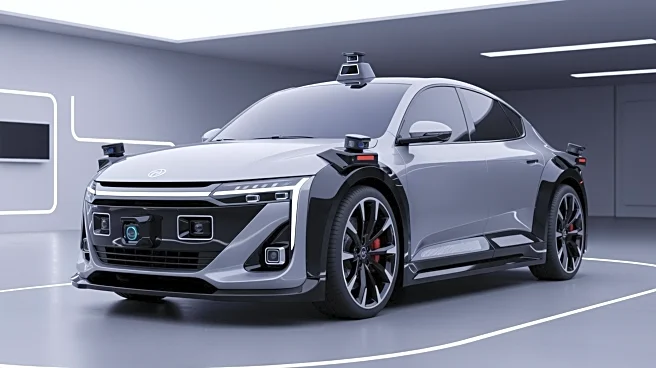What's Happening?
During an interview at TechCrunch Disrupt 2025, Waymo co-CEO Tekedra Mawakana called on other autonomous vehicle companies to demonstrate the safety of their technology. Mawakana emphasized the importance of transparency, stating that companies must be
open about their fleet operations to earn public trust. She highlighted Waymo's data, which claims their vehicles are significantly safer than human drivers. While not naming specific competitors, Mawakana suggested that some companies are not sufficiently transparent, which could hinder their ability to improve road safety. The discussion comes amid Waymo's expansion efforts and recent safety incidents.
Why It's Important?
Mawakana's comments underscore the growing scrutiny on autonomous vehicle companies to ensure their technology is safe for public use. As these companies expand their operations, they face pressure to prove their safety claims to regulators and the public. Transparency in reporting safety data could become a critical factor in gaining public acceptance and regulatory approval. Waymo's stance may influence industry standards, encouraging competitors to adopt similar transparency measures. The development of autonomous vehicles has the potential to transform transportation, but safety concerns remain a significant barrier to widespread adoption.
What's Next?
Waymo and other autonomous vehicle companies are likely to face increased regulatory scrutiny as they expand their operations. Companies may need to enhance their safety protocols and reporting practices to meet public and regulatory expectations. Waymo's expansion plans, including launching services in new cities, will require ongoing collaboration with local governments to address safety concerns and infrastructure needs. The industry may see a push for standardized safety metrics and reporting practices to ensure consistent evaluation of autonomous vehicle technology.
Beyond the Headlines
The call for transparency in autonomous vehicle safety could lead to broader discussions about ethical and legal responsibilities in the industry. As companies deploy vehicles without human drivers, questions about liability in accidents and the ethical implications of decision-making algorithms may arise. The industry's growth could also impact employment in traditional transportation sectors, prompting discussions about workforce transitions and retraining programs.

















